What is a Market Maker?
A market maker is a financial institution or individual trader who stands ready to buy and sell securities, such as stocks, at publicly quoted prices. They act as intermediaries between buyers and sellers, ensuring that there is a consistent market for the securities they cover.
Market makers continuously offer to buy and sell securities, creating liquidity in the market. By providing liquidity and reducing the bid-ask spread, market makers contribute to efficient and cost-effective trading for investors. They make it easier for investors to enter and exit positions without significantly impacting the security’s price.
Market makers must adhere to the rules and regulations established by the stock exchange where they operate. In many jurisdictions, market makers are required to register with the relevant regulatory authority or stock exchange. They are expected to uphold the integrity of the market and refrain from engaging in manipulative or fraudulent trading practices that could distort market prices or harm other participants. Regulations prohibit practices such as front-running, churning, and market manipulation.
Market Maker Definition
A market maker is a participant in a financial market who consistently stands ready to buy and sell specific securities, offering continuous bid and ask prices, thereby ensuring market liquidity and enabling efficient trading for other investors.
Market makers make a profit from the bid-ask spread. They buy securities at the bid price (the highest price a buyer is willing to pay) and sell them at the ask price (the lowest price a seller is willing to accept). The difference between these two prices represents the market maker’s profit.
Market makers play a role in stabilizing stock prices. When there are more sellers than buyers, they may increase their bid price to encourage buying and support the stock’s value. Conversely, when there are more buyers than sellers, they may lower their ask price to encourage selling.
What are the Roles of a Market Maker?
Liquidity Provision: Market makers continuously offer to buy and sell specific securities at publicly quoted prices. This ensures that there are always willing buyers and sellers in the market, making it easy for investors to trade promptly and without significant price fluctuations.
Bid-Ask Spread Management: Market makers profit from the bid-ask spread, which is the difference between the price at which they are willing to buy (the bid price) and the price at which they are willing to sell (the ask price) a security. They manage this spread to ensure it remains competitive and narrow, reducing trading costs for investors.
Price Stabilization: Market makers help stabilize security prices by adjusting their bid and ask prices in response to market conditions. When there is an imbalance between buyers and sellers, they may adjust their quotes to encourage trading in the direction that restores balance.
Efficient Trading: Market makers contribute to efficient and cost-effective trading by providing liquidity and reducing the bid-ask spread. Investors can enter or exit positions without causing significant price swings. This helps maintain market stability and ensures smooth trading.
How a Market Maker Works
Market makers use sophisticated trading algorithms and technology to execute orders quickly. When a buy order matches a sell order, they facilitate the trade, taking the other side of the transaction. They may also have access to Level 2 or order book data, enabling them to see the supply and demand for a security in real time.
Here’s how a market maker typically works:
1. Continuous Bid and Ask Quotes & Providing Liquidity
Market makers continuously display bid and ask quotes for specific securities. By displaying these quotes, market makers provide liquidity to the market. Liquidity means there are always willing buyers and sellers for a security, making it easy for other investors to buy or sell.
2. Managing the Bid-Ask Spread & Price Stabilization
Market makers aim to keep this spread competitive and narrow. A smaller spread benefits investors as it reduces their trading costs. Market makers also help stabilize security prices by adjusting their quotes based on supply and demand. When there are more buyers than sellers, they may raise their bid prices to encourage selling, thus supporting the security’s value. Conversely, when there are more sellers, they may lower their ask prices to attract buyers and prevent excessive price drops.
3. Order Matching
When a buy order matches a sell order at the same price, the market maker facilitates the trade by taking the opposite side of the transaction. For example, if an investor places a market order to buy a stock, the market maker may sell the stock to that investor.
4. Handling Complex Orders with Advanced Technology
Market makers are equipped to handle various order types, including limit orders, stop orders, and options contracts. They have the tools and expertise to execute complex trades according to investors’ instructions. They rely on advanced trading algorithms and technology to execute orders swiftly and efficiently.
5. Risk Management
Market makers closely monitor their trading positions and the risk associated with holding specific securities. To manage this risk, they may use hedging strategies. For example, if a market maker has a large position in a particular stock, they might hedge by taking an offsetting position in related options.
6. Regulatory Compliance
Market makers are subject to regulatory oversight to ensure they adhere to market rules and maintain transparency. Regulatory bodies monitor their activities to prevent market manipulation and ensure fair and efficient markets.
How do Market Makers make Money?
Market makers make money primarily through the bid-ask spread and trading volume. Here’s how they generate profits:
Bid-Ask Spread: Market makers continuously display bid and ask prices for specific securities. The bid price is the highest price a buyer is willing to pay for a security, while the ask (or offer) price is the lowest price at which a seller is willing to sell the security. The difference between the bid and ask prices is known as the bid-ask spread. They profit from the spread by buying securities at the bid price and selling them at the ask price. The wider the spread, the more potential profit for the market maker.
High Trading Volume: Market makers rely on high trading volumes to generate income. The more shares or contracts they trade, the more opportunities they have to profit from the bid-ask spread.
Scalping: Market makers often engage in scalping, where they aim to make small, frequent profits on numerous trades throughout the trading day. By quickly buying at the bid and selling at the ask, they capture the spread multiple times.
Volume Rebates: Some market makers negotiate volume-based rebates with the exchanges or trading platforms on which they operate. These rebates provide financial incentives for executing a significant amount of trading volume on those platforms.
Hedging Strategies: Market makers may use hedging strategies to manage the risk associated with their trading positions. By taking offsetting positions in related securities or options, they reduce the potential for large losses.
Proprietary Trading: Market makers may engage in proprietary trading, where they use their own capital to trade for profit. This can include trading securities unrelated to their market-making activities.
Market Research and Analysis: Market makers often have access to extensive market data and research. They may also provide market analysis and trading advice to clients for a fee.
It’s important to note that while market makers profit from the bid-ask spread, they also assume a level of risk, particularly if market conditions change rapidly. They operate without a guarantee of finding a buyer or seller at their quoted prices. Their ability to manage and mitigate risk is a critical part of their operations.
What is a Designated Market Maker (DMM)?
A Designated Market Maker (DMM) is a specialized market maker appointed by the New York Stock Exchange (NYSE). Their primary responsibilities include maintaining fair and orderly markets, enhancing liquidity, and facilitating the trading of specific securities. DMMs on NYSE were previously known as specialists.
Designated Market Makers (DMMs) are selected by the exchange to serve as the primary market maker for specific securities listed on the exchange. They are responsible for ensuring that these securities have an active and liquid market.
DMMs monitor order imbalances, especially during periods of high volatility or significant news events. If there is a substantial excess of buy or sell orders, DMMs may step in to manage these imbalances and prevent disorderly trading.
DMMs have the authority to adjust their quoting and trading activity to manage excessive volatility in the securities they oversee. Their actions are aimed at stabilizing the market and preventing abrupt price movements.
DMMs are subject to stringent oversight by the exchange and must adhere to exchange rules and regulations. This oversight is in place to maintain market integrity and ensure that DMMs fulfill their obligations transparently.
It’s important to note that not all stock exchanges use the term Designated Market Maker. Different exchanges may have their own terminology.
Market Maker vs Designated Market Maker (DMM)
A Market Maker is a general term used to describe individuals or firms that facilitate trading by continuously quoting bid and ask prices for various securities. On the other hand, a Designated Market Maker (DMM) is a specific type of market maker with a specialized role on a particular stock exchange.
Designated Market Makers (DMMs) are formally appointed and designated by NYSE to fulfill their role. They are assigned specific securities or a group of securities for which they are responsible. In other words, DMMs are part of the exchange’s market structure.
Examples of Market Makers
Market Makers play a vital role in providing liquidity and facilitating trading in financial markets. Here are some examples of well-known Market Makers:
Citadel Securities: Citadel Securities is one of the largest and most prominent Market Makers in the world. They provide liquidity in a wide range of financial markets, including equities, options, fixed income, foreign exchange, and more.
Virtu Financial: Virtu Financial is a global electronic Market Maker known for its high-frequency trading and market-making activities. They are active in equities, options, and other asset classes.
Susquehanna International Group (SIG): SIG is a leading quantitative trading and technology-driven Market Maker. They provide liquidity in options, equities, and other financial instruments.
KCG Holdings (now part of Virtu Financial): KCG was a significant Market Maker before merging with Virtu Financial. They were known for their electronic trading and market-making capabilities.
Jane Street: Jane Street is a well-known Market Maker specializing in electronic trading and quantitative strategies. They are active in various asset classes, including equities, fixed income, and cryptocurrency markets.
Optiver: Optiver is a global electronic market-maker that focuses on derivatives trading. They provide liquidity in options and futures markets.
IMC Financial Markets: IMC is a technology-driven Market Maker with a presence in various global markets, including equities, commodities, and foreign exchange.
Flow Traders: Flow Traders is a global electronic liquidity provider specializing in exchange-traded products (ETPs) and related derivatives.
Two Sigma Securities: Two Sigma Securities is part of the Two Sigma investment management firm and operates as a Market Maker in equities, options, and other asset classes.
GTS (GTS Securities): GTS is a quantitative trading and technology firm that acts as a Market Maker in various financial markets.
Market Makers Manipulation
While their primary role is to match buy and sell orders and maintain a fair and orderly market, there have been concerns and allegations of market manipulation involving Market Makers. It’s important to note that not all Market Makers engage in manipulative practices, and most of them operate with integrity.
Here are some common concerns related to market manipulation:
Spoofing and Layering: Some traders, including Market Makers, may engage in spoofing and layering strategies. Spoofing involves placing large, non-genuine orders to create a false impression of supply or demand. Layering is a similar practice where traders place multiple orders at different price levels. Both strategies can mislead other market participants.
Front-Running: Market Makers may have access to order flow and information before executing client orders. In some cases, there have been allegations of front-running, where a Market Maker takes advantage of this information by trading for their own benefit ahead of client orders.
Quote Stuffing: Market Makers can flood the market with a large number of orders, known as quote stuffing, to slow down the trading systems of competitors. This can create confusion and disrupt the market.
Collusion: In rare instances, Market Makers from different firms may collude to manipulate prices or spreads. This is illegal and can result in severe regulatory actions.
Marking the Close: Market Makers can manipulate the closing prices of securities by executing a significant volume of trades near the market close. This can affect index values and the performance of related investments.
High-Frequency Trading: Some argue that high-frequency trading (HFT) strategies, often employed by Market Makers, can create market instability and contribute to rapid price swings. While this is not necessarily manipulation, it can be a concern for market stability.
To address these concerns and maintain market integrity, regulators and exchanges have implemented strict rules and surveillance mechanisms. Regulators like the U.S. Securities and Exchange Commission (SEC) and the Commodity Futures Trading Commission (CFTC) in the United States have introduced regulations to detect and prevent manipulative practices. Exchanges also have surveillance systems to monitor trading activity and investigate unusual patterns.
Investors and traders can further protect themselves by using limit orders, monitoring their executions, and reporting any suspicious activity to regulatory authorities. It’s essential to understand that while market manipulation can occur, the majority of Market Makers operate within legal and ethical boundaries to provide efficient and liquid markets.

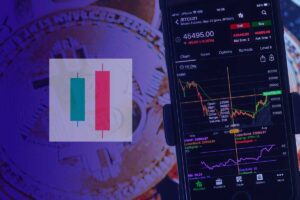
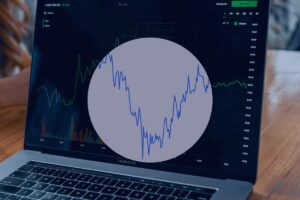
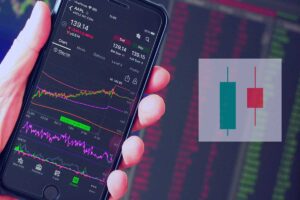
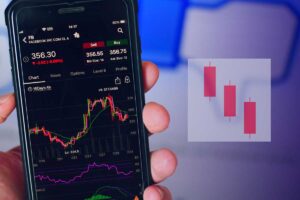
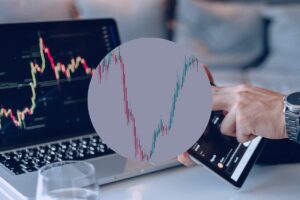

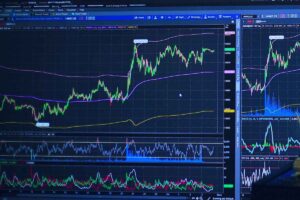
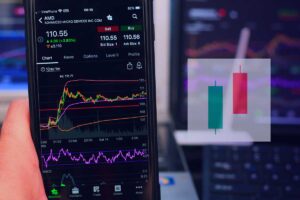

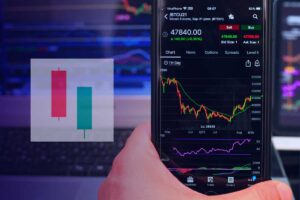
Very remarkable topic